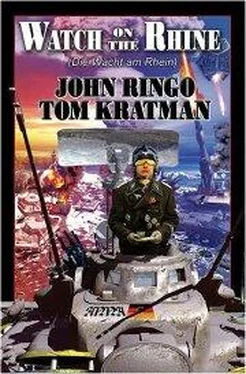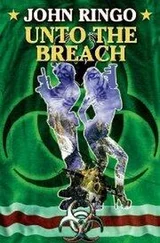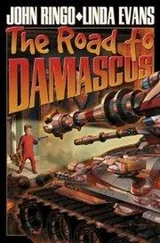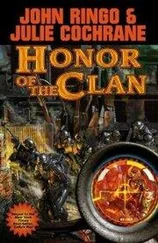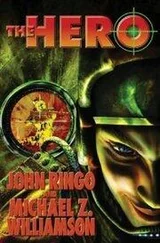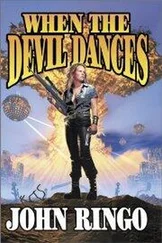“By all means. Please introduce them. And show me the plans.”
“Plans first then, I think. And while I am at it I will introduce the team members responsible for each part.” Prael directed Mühlenkampf’s eyes to a table upon which stood a model of a tank.
“Nice appearance, anyway,” muttered the general noncommittally.
“Oh, it will be more than appearance, Herr General ,” answered Prael. “This is going to be, by at least two orders of magnitude, the most powerful panzer ever to roll.”
“We will see what we will see,” commented Mühlenkampf. “Why this absurdly long gun?”
“Johann?”
Mueller stepped forward. “Because they wouldn’t listen to me about a railgun, Herr General .”
Prael snorted. Mueller never missed a chance.
“You must forgive me,” said Mühlenkampf, “but what is a railgun?”
“My pet project… and dream,” answered Mueller. “It’s a weapon that passes electricity along two bars. The electricity creates a magnetic field. The field catches, and then propels forward at great speed, a projectile.”
“This is possible?” queried the general, realizing instantly the potential of such a weapon.
“Possible,” admitted Henschel, introducing himself. “It is possible, General Mühlenkampf, but not possible just yet .”
Mueller shrugged. “In time. A year or so, maybe. Okay, maybe two,” he admitted, looking at Henschel’s scorning face. “In any case, Henschel here is right. It will not be ready quite in time. What you see, General Mühlenkampf, is a three hundred five millimeter gun, much lengthened over its one hundred twenty millimeter predecessor, and using an American-designed propellant system. Since I can’t have my railgun, I am reduced to designing the recoil system for this one. Also, since the specialties are somewhat similar, I oversee the design of the suspension with Herr Schlüssel here.”
“Reinhard Schlüssel,” introduced the bent-over, gnomelike veteran of the German Navy. “It is also my job to design the turret for the tank. Though Benjamin here has been of inestimable value.”
Mühlenkampf cocked his head. “Benjamin?”
“David Benjamin,” answered the only truly swarthy man in the room. “Of Tel Aviv,” he continued coldly, so as to keep a hostile note out of his voice. “I am here on loan from Israeli Military Industries. We intend to build a few of these ourselves, and to purchase several more.”
The time for apologies passed before they ever became fully due, thought Mühlenkampf. None I could make would make up for anything.
Instead he answered, merely, “Very good. I have been most impressed with the design for all four versions of your Merkava panzer. Sensible. Wise. I am pleased you are here, Herr Benjamin.”
The Israeli shrugged as if to say, It would please me more were you displeased to see me, SS man.
Filling the stony silence that followed, Prael said, “Indeed, you can see the ancestry of the tank in the Merkava.”
“Yes,” agreed Mühlenkampf, glad for any bridge over the impasse. “That pushed-back turret especially. How big is this thing?”
“The Tiger Drei,” answered Henschel, finally naming the project, “Is twelve meters wide, thirty-one meters long and weighs approximately seventeen hundred and fifty tons, fully combat loaded. It is very heavily armored.”
“ Mein Gott! ” exclaimed the general, the implications of the size of the scaled-down gun on the model finally sinking in. “What could possibly drive the need for such a monstrosity?”
“Come here, Herr General , and I shall show you the answer,” answered Henschel, unveiling several models of Posleen landing and attack craft.
The general also did have an answer; though the answer was not one designed to please his nominal political masters, or — most particularly — some elements of their support.
The new recruits had been herded, cattlelike, to stand in the freezing snow in the middle of the Kaserne . There they stood, shivering and miserable in thin uniforms, unmarked save for a small flag of black, red and gold sewn on each sleeve. Suddenly, as if on command… indeed on command… from around the perimeter of the parade field lit spotlights, climbing and meeting overhead to form an arch or, perhaps better said, a cone, composed of dozens, scores, of spears of light.
The startled recruits flinched, unmilitarily, but the rejuvenated SS cadre scattered loosely around them took no official notice. Then they heard music… and the singing…
* * *
Mühlenkampf, Brasche at his side, stood in warm black leathers under the same cone as the recruits though yet he remained apart from them by decades and even worlds. He suppressed a grin. Icy cold was his mien, as icy as the air.
Face still a mask, he asked of Brasche, “Do you know why, my Hansi, the skinheads never really got anywhere, politically, in Germany?”
Hans whispered back, “No, Herr Obergrüppenführer …”
“Lieutenant General, Hansi. Lieutenant General,” corrected Mühlenkampf, gently yet with a sardonic grin he made no effort to keep from his face. “Our masters do not like the old ways.”
“ Zu befehl, Herr Generalleutnant ,” answered Brasche, semiautomatically.
Mühlenkampf’s grin remained, becoming, if anything, more scornful still.
“The skinheads never got anywhere, Hansi,” continued the general, “because this is Germany and the assholes never learned to march in step…”
* * *
“… Marschiern im Geist, in unsern Reihen mit …” [15] March with us in spirit, with the same step and tread. This is from the strictly forbidden “Horst Wessel Lied.”
sang the marching men, boots ringing on the ice and cobblestones. Even now the first veterans became visible to the neck-craning recruits as their serried ranks passed through the gates of the Kaserne. “ Die strasse frei! …” The song was forbidden, of course. “ Ganz Verboten .” But to men who had told Hitler and Himmler to go “fuck themselves” not once, but on countless occasions, what meant the strictures of a government weaker and in every way even more despised? “ Die Fahne hoch! Die reihen fest geschlossen …” [16] Raise the banner, hold the ranks steady.
began the song’s last, repeat, verse.
In the ranks of the old SS sang one Helmut Krueger. How good it was to Krueger, how very good, to once again feel the blood of youth coursing in his veins. How good to march with his old comrades, to sing the old songs. How good it was to be what Krueger had never thought himself to be any other than, an unrepentant, anti-Semitic, Nazi of the old school.
Krueger dreamed, daydreamed actually, of a broad-scale return of the old days. He imagined once more the cringing Jewish, Slavic and Gypsy whores opening their buttocks, legs and lips in fear of him. The power was an intoxicant. He saw, with half a mind’s eye, the cowards, suspended by their necks from lamp posts, kicking and gasping and choking out their last. Even the memory caused him to shiver slightly with delight. He heard the “ Heils ” coming from ten thousand throats and the sound was better than good. He remembered how grand he had felt at losing the self and joining such a godlike power. He saw the flaming towns and smiled. He heard the screams from the gas chambers and crematoria and shuddered with a nearly sexual joy.
Krueger was sure that after decades of exile he was at last coming home.
* * *
Missing his home, Dieter Schultz, aged eighteen, along with the other recruits, shuffled nervously in the cold snow. One would have thought that the boys would never have heard the songs, this being Germany, rules being rules. And, indeed, know the songs they did not. Yet they recognized them.
Читать дальше
